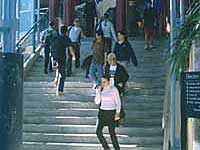|
||||||||||||||||||||||||||
| English - ENGLA23408 | ||||||||||||||||||||||||||
This plan is only available to students commencing 2009 onwards
The Minor in English covers literature from a range of historical periods, from the Renaissance through to postmodernism and contemporary society. It locates the study of literature in a variety of contexts: cultural, political, biographical, social, theoretical and ideological. It acknowledges the breadth and diversity of contemporary literary and cultural studies, drawing upon a range of interdisciplinary methodologies and theoretical movements, such as poststructuralism, feminism and gender studies, postcolonialism, creative writing and discourse analysis, to engage in dynamic fashion with more traditional approaches to the discipline, such as close reading, aesthetic evaluation and canon formation. The aims of the Minor in English are: 1. to provide students with an understanding and appreciation of the importance of literature and literary culture to the history of ideas, to national and transnational cultural identities, to the ethical formation of individuals and communities, to cultural politics, to artistic movements, and to public life. 2. to develop skills such as the ability to conduct close textual analyses, and to write with clarity, precision and persuasiveness. 3. to foster the capacity for independent research, for critical analysis of all forms of writing and media representation 4. to foster a capacity for problem solving and argumentation, for sophisticated written and oral communication and for imaginative experimentation with language. 5. To enable students to gain an understanding of national and transnational literary heritages. A student who wishes to gain a Minor sequence in English must complete 42 units of credit including 12 uoc at Level 1, at least 12 uoc at Level 2 and at least 12 uoc at Level 3, plus 9 units of credit in methodology in the second teaching area EDST courses.
Level 1
Level 2
Level 2 Courses cover aspects of literature from early modern to modern periods. They also cover the study of literature according to issues such as gender (looking in particular at women writers and women on the Shakespearean stage) and a specialised focus on Australian literature. Creative Writing is also offered at second-year level.
Level 3
Level 3 courses cover key theoretical and cultural issues relating to narrative, Gothic literature, Australian masculinities, the fiction of Jane Austen, and postcolonial literature. Creative Writing is offered at third-year level.
|
||||||||||||||||||||||||||



